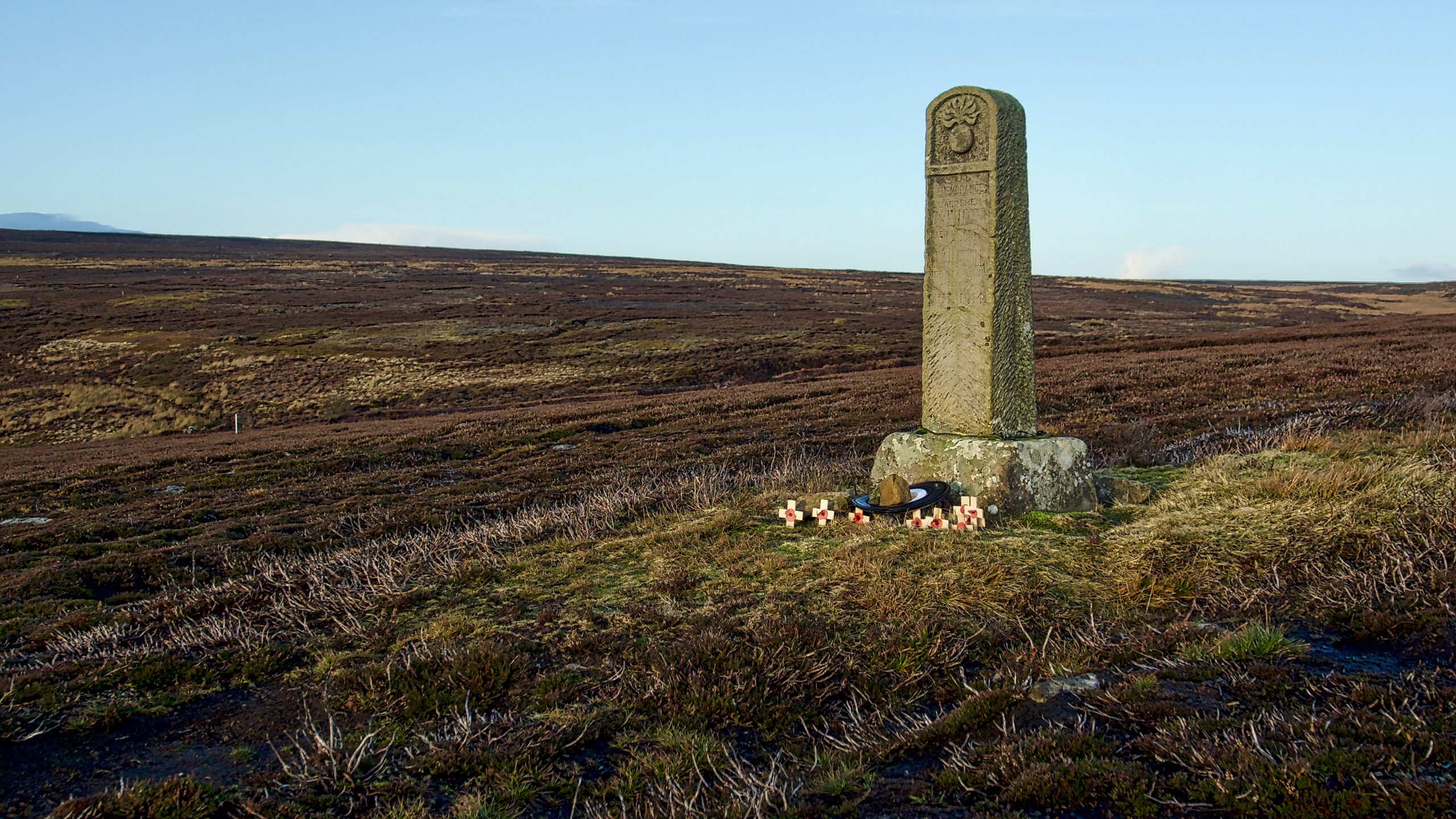On the eve of a General Election, it is perhaps time for a moment’s reflection on how our 21st-century society has benefitted from the bravery of the young men who made the ultimate sacrifice for their country over a hundred years ago.
Robbie Leggett and Alf Cockerill, the two names on the memorial, were boyhood friends who knew these moors well. They both became shepherds for the Gisborough Estate and on the outbreak of the First Work War, they enthusiastically volunteered to join up. Neither was to see these moors again. They were just two of the 700,000 plus British soldiers, sailors and airmen that did not return.
“The world must be made safe for democracy.” With those words, President Woodrow Wilson committed the United States of America to the war in 1917. But what is democracy? Fair and free elections with ‘one man, one vote’? When Robbie and Alf took themselves off to London to join the Grenadier Guards, it is doubtful that either would have been entitled to vote since to qualify you had to be a householder with an annual rent of £10 or hold property of the same rateable value.
With this large number of fatalities and with millions of men about to return from the front, both the Government and the Opposition were very aware of the inadequacies of the British electoral system and the risk of discontent. Consequently, the Representation of the People Act was passed in 1918 which extended the vote to all men over the age of 21 (or 18 if they had served in the war) and to all women over 30 who met a property qualification. The Act removed the property qualification for men, replacing it with a simple residence qualification, giving almost universal male suffrage. Obviously it did not completely fulfil the principle of ‘one man, one vote’; it would take another ten years for women to get the same voting rights as men.
Of course, this was just another step on the road of electoral reform. Several small steps had been made throughout the 19th-century: the Great Reform Act 1832, the Second Reform Act 1867, the Ballot Act 1872 and the Representation of the People Act 1884. Prior to 1832 in order to vote, you had to own land or property worth at least 40 shillings, this was for the county seats and amounted to a little more than 10% of the county’s population. In the boroughs, there was a complex arrangement of different rules. In potwalloper boroughs, only the male head of a household with a hearth large enough to boil a cauldron could vote. In pocket boroughs, a dominant landed family would simply put their own man in parliament, sometimes a family member, or sell the seat to the highest bidder. In burgage boroughs, the right to vote was attached to the occupation of a rental property owned by a lord. There were the rotten boroughs, Old Sarum being the classic example which sent two members to the House of Commons but had a population comprising only of sheep. Compare with Manchester with a population of over 144,000, and which had no direct parliamentary representation whatsoever.
And then we come to the procedure. Voting was not conducted in secret but in the open over a period of 15 days. This meant that candidates could see who did and did not vote for them. And woe betided you if you voted for anyone other than your landlord or employer. Bribery was rife, cash for votes, and offers of jobs or lucrative government contracts. Free beer was a fairly common inducement, better to have a pliant electorate less inclined to resist the intimidation by the ‘lambs’, gangs of hired criminals. Another tactic was the kidnapping of rival supporters and detaining them for the duration of the poll, also known as ‘cooping’. And once elected, MPs had to have independent means, no salaries were paid.
So when you are about to place your cross on your voting slip be proud of the right you are exercising. Place wisely and think of young Robbie and Alf who did were denied such an opportunity.

Leave a Reply